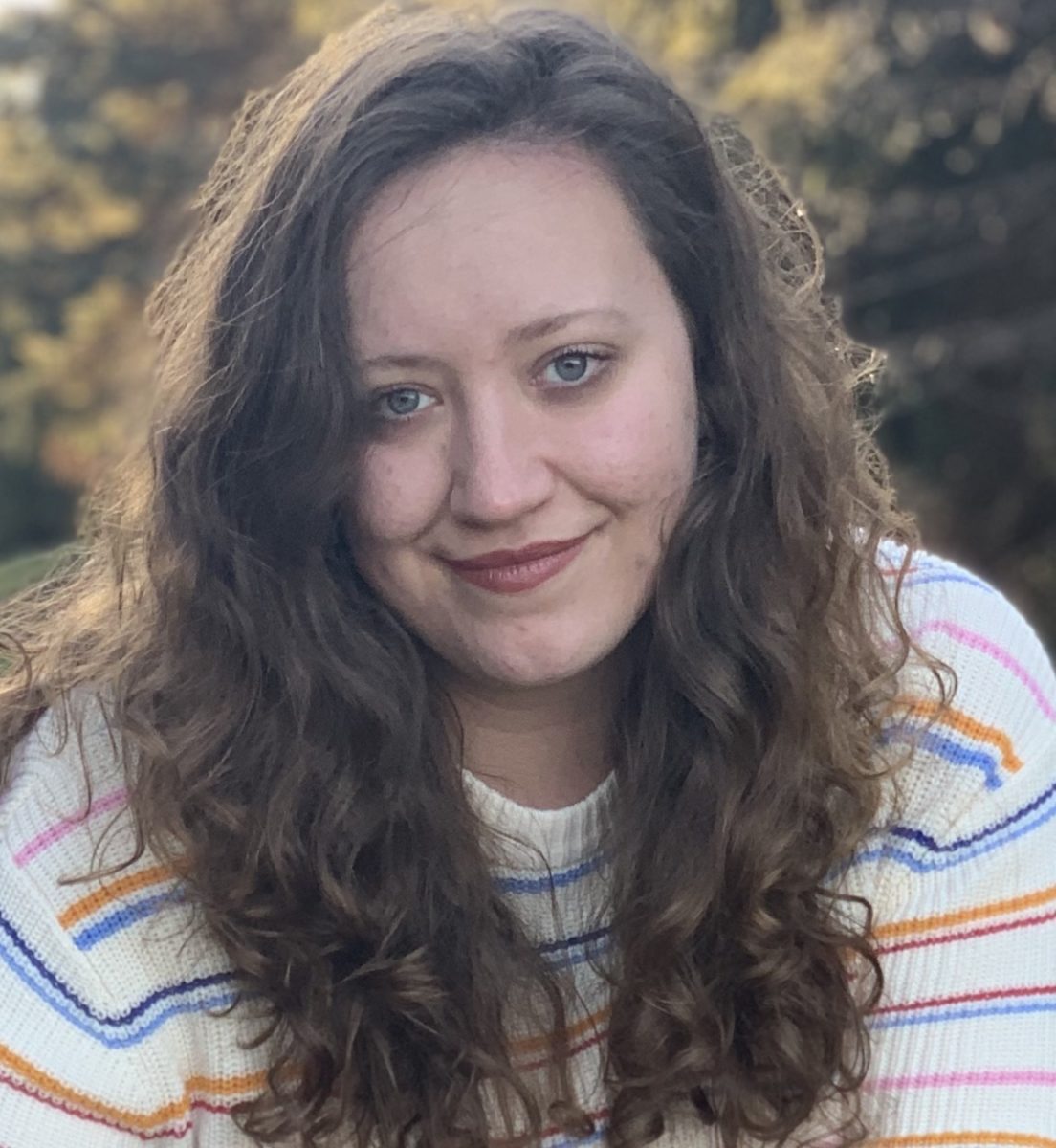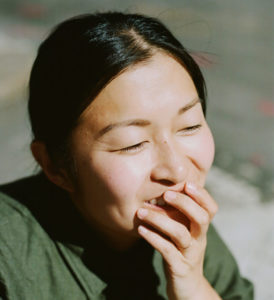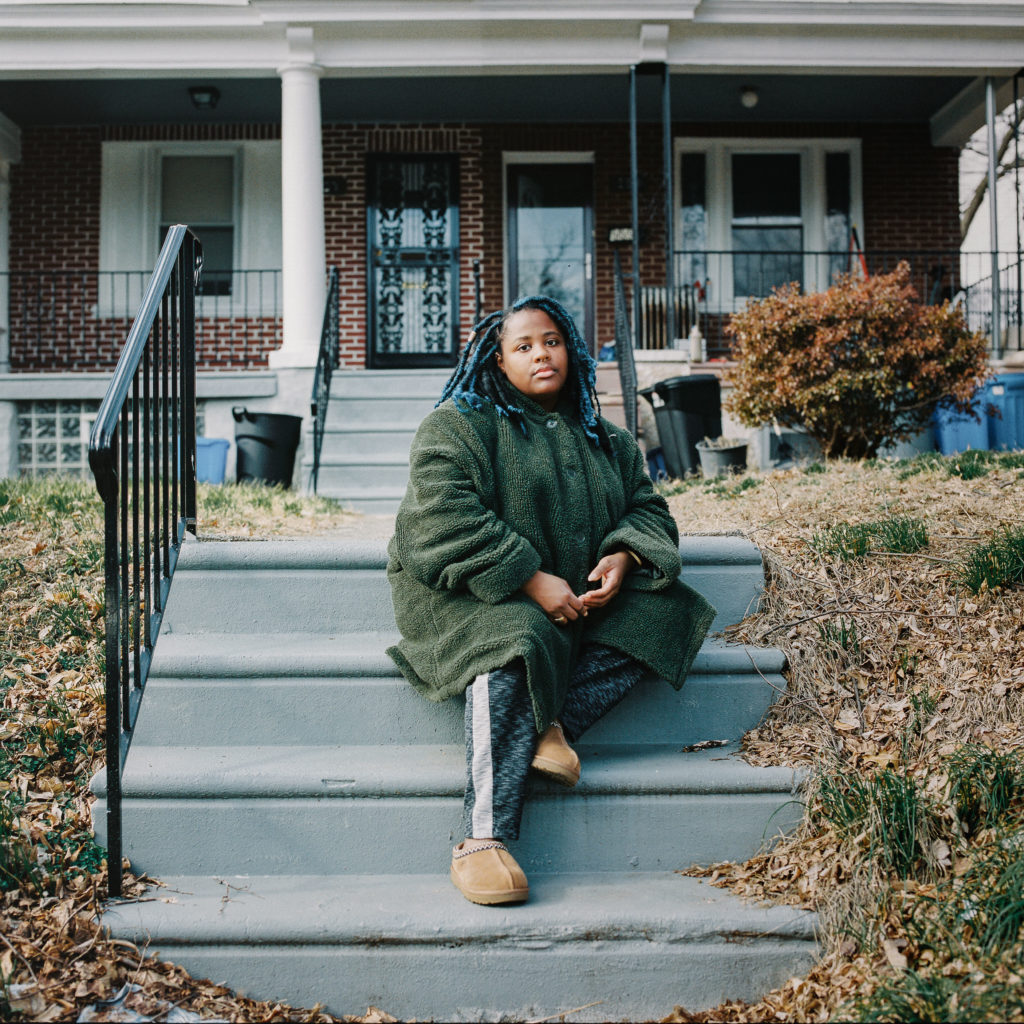‘Germantown Neighbors’ share personal stories and reflect on gentrification
 September 3, 2021
Category: Featured, Media, Medium, Purpose
September 3, 2021
Category: Featured, Media, Medium, Purpose
Lori Hayes grew up in West Central Germantown and lived with her grandparents in the same house she now owns.
“I went away to school and worked a number of years, then married and such,” she said, “but always had the connection with my home on West Pomona Street.”
“I’m like the kid that never left,” Hayes, 61, said.
Hayes is one of 10 residents featured in the first volume of “Germantown Neighbors,” a project documenting the experiences of longtime residents through both portraits and personal anecdotes.
The project was created by photojournalist Hannah Yoon, 35, a Germantown resident herself. Through the stories of her neighbors, Yoon explores the impacts of gentrification and attempts to provide historical insight to newcomers moving into the neighborhood, like she did in late 2018. Yoon plans to release the project later this month both digitally on her website and in print as a zine.
“I think long-term residents feel that newer folks may not respect the history here,” Yoon said. “I think the goal is to just kind of subtly show like, ‘Hey, here’s the people who’ve been here before you.”
Yoon plans to distribute the printed version of “Germantown Neighbors” at local coffee shops and breweries. She also wants to work with realtors to provide the printed version to new residents as they move into the neighborhood.
“These are all kind of places of change, and where I personally think a lot of newer people are going to,” Yoon said.
Yoon devised the project alongside lifelong resident Chantel Carden, 29, of East Germantown, when they were both community participants in a Temple University solutions journalism class. While participating in the class in fall of 2019, Yoon and Carden were listening as other Germantown residents spoke to each other, and they noticed similar threads in these conversations.
“They were bringing up similar issues, like they feel like they’re being pushed out, or like the new neighbors come in and they won’t speak,” Carden said.
“Usually, the burden of gentrification is put on the folks who are already there, so this was kind of a way to help relieve some of that tension,” Carden added, “like, ‘OK, hey, you’re new in the neighborhood, maybe you should check out this zine to try to get to know people.”
Yoon brought this project idea to life with “Germantown Neighbors,” for which she received a grant from the International Women’s Media Foundation. Carden took part in the project as a resident interviewee, sharing her experiences growing up in Germantown.
Many longtime residents, like Carden, said they have felt the presence of both housing developers, as well as new residents — often young and white — coming into Germantown.
“They’re not as friendly,” Carden said of newcomers. “It’s not as connected.”
Hayes has also felt this lack of community. Earlier this summer, she was walking through a nearby block party, and she couldn’t help but notice none of the neighbors would acknowledge her.
“No one says ‘hello,’” she said, “whereas you would think, I’m older, someone would just say, ‘Hello, Miss, how’re you doing?'”
When Hayes was younger, the community in Germantown was much different. The neighborhood was tight-knit. It was so tight-knit in fact that when Hayes snuck down to Vernon Park to smoke a cigarette at the age of 12, a neighbor had recognized Hayes and already called to tell her mother by the time she got back home.
Carden, though from a different generation from Hayes, has also watched the neighborhood change both in terms of demographics and development projects. Just in her lifetime, she can recall a new grocery store being built nearby and two apartment complexes replacing homes.
Carden herself lives in an apartment just a block away from her childhood home, she said. And as she’s grown older, her relationship with the neighborhood has become more complicated.
“Germantown is home to a lot of Black gentrifiers, too, because of the area, and all of the younger people are starting to make more money,” she said. “I had to do some reflection on myself like, ‘OK, I’m considered a gentrifier, too.’”
“That was something that Hannah and I talked about too, like, ‘What does gentrification look like depending on the person?’” Carden said.
Yoon’s goal with the project, she said, is not to shame newcomers, but to honor the people who’ve been in Germantown.
“I think it’s so important to connect and communicate with the folks who’ve lived here and not make assumptions about what we think is needed for Germantown,” Yoon said. “The big thing is to honor and respect and preserve history and culture, and I think to understand people who’ve been here for generations as well.”
Trending News












